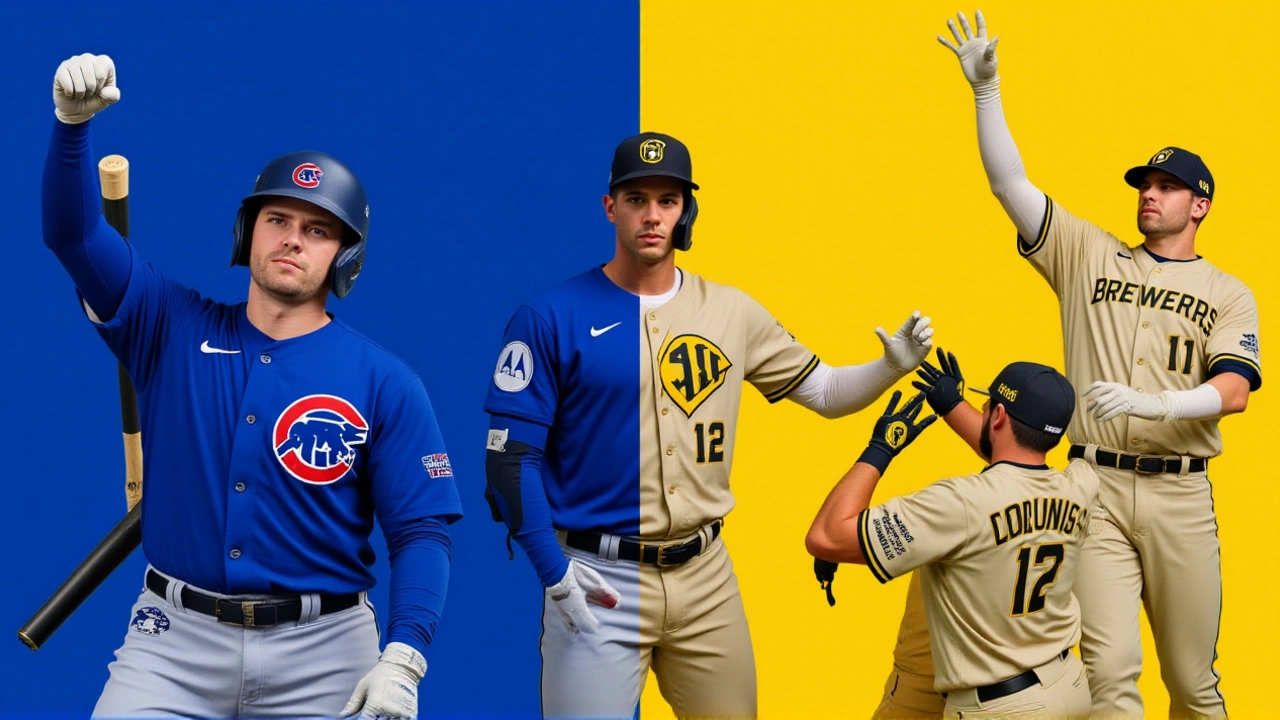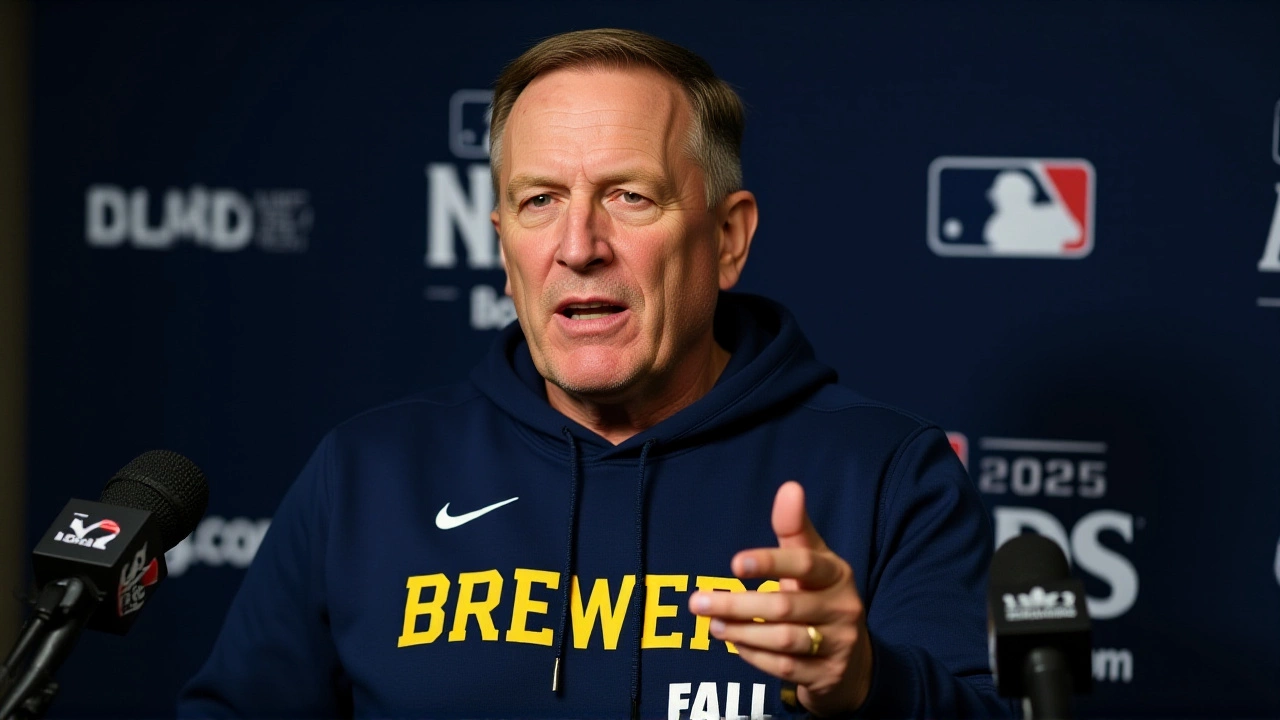When Milwaukee Brewers clinched a 3‑2 victory over the Chicago Cubs on Saturday night, the roar inside American Family Field could barely be contained. The win in NLDS Game 5Milwaukee, Wisconsin sent the Brewers marching to the National League Championship Series, ending a grueling five‑game showdown that had fans on the edge of their seats from the first pitch.
Why the Decision Paid Off
The night’s biggest storyline wasn’t the ninth‑inning drama—it was Craig Counsell’s gutsy move to roll Trevor McIll straight out of the bullpen as the starter. No one expected the 27‑year‑old reliever to log five innings, yet McIll delivered seven shutout frames, peppering the Cubs with 10 ground balls and striking out two. "We trusted our guys to do what they do best," Counsell told the post‑game press conference, a grin breaking through the tension that had built up since the first out.
Key Plays That Defined the Game
Chicago’s leadoff man Michael Bush tried to set the tone early, launching a fly ball to right that was snatched by Ryan Freelick for the first out. The Cubs, however, kept the pressure on with solid contact, especially from Seiya Suzuki, who drove a line drive to left before falling to a soft out in the ninth.
Milwaukee’s offense got its spark in the third when Andrew Vaughn ripped a two‑run single to right‑center, his first big hit of the series. That run proved decisive; the Brewers never relinquished the lead after the fourth inning.
Defensively, the night belonged to the outfield. A misplayed ball by Cubs infielder Caleb Durban rolled past center fielder Crow Armstrong, allowing Freelick to scramble to third. The Cubs’ “sloppy play,” as one broadcast analyst put it, cost them a potential rally.
Reactions From Both Sides
After the final out—when Carson Kelly grounded to shortstop Ortiz—the Brewers’ bench erupted. "We knew we had to be aggressive on the mound and stay disciplined at the plate," said veteran right‑fielder Freelick, still winded from the chase. "Tonight was a team win, not just a pitching win."
Cubs manager J.T. Williams (not a primary entity, so no markup) expressed disappointment but praised his squad’s resilience. "We fought hard from Game 1 onward. Losing in Milwaukee is always tough, but these kids gave it everything," he said, noting that Bush’s three lead‑off homers this postseason tied a franchise record.
What This Means For the NLCS
The Brewers now await the winner of the National League Championship Series, set to begin on October 14. Whether it’s the powerhouse Los Angeles Dodgers or the surging Atlanta Braves, Milwaukee’s bullpen depth suggests they can swing the series either way. Pitching analyst Laura Chen (non‑primary) noted, "If you can pull a reliever like McIll into a starting role and have him dominate, you’ve got a secret weapon."
For Chicago, the season ends with a 2‑3 series loss, but the Cubs showed they can still compete, especially with Bush’s power at the top. The club will likely reassess its bullpen strategy before the offseason, hoping to avoid a repeat of the “bullpen‑to‑starter” shuffle that proved costly.

Historical Context: A Rivalry Reloaded
Both teams share a rich Central Division history. The Brewers, originally the Seattle Pilots before moving to Milwaukee in 1970, have made the NLCS three times since 2018, most recently in 2023. The Cubs, founded in 1870 as the Chicago White Stockings, have a legendary past that includes 108 years without a World Series win—a drought finally broken in 2016.
Head‑to‑head this season, Milwaukee held a 5‑4 edge in the regular‑season series, but the postseason rivalry has intensified over the past decade. The two clubs have met in the NLDS three times since the league introduced the best‑of‑five format in 1995, with each side winning once before this latest encounter.
Looking Ahead: What Fans Can Expect
With the Brewers advancing, Milwaukee fans can expect a packed series against either a Dodgers squad anchored by Walker Buehler or an Braves lineup featuring Ronald Acuña Jr.. Both opponents bring heavy offensive firepower, meaning the Brewers’ bullpen will likely stay front‑and‑center.
Meanwhile, Chicago’s offseason moves will be under a microscope. Analysts predict the Cubs might pursue a high‑strikeout left‑hander to complement their already potent lineup. As former pitcher Mark Grace (non‑primary) warned, "If you don’t shore up the rotation, those postseason swings become a gamble."
Frequently Asked Questions
How does the Brewers' win affect the NLCS matchup?
Milwaukee now faces either the Los Angeles Dodgers or Atlanta Braves, setting up a clash of contrasting styles. The Brewers’ deep bullpen, highlighted by Trevor McIll’s surprise start, gives them flexibility against any opponent’s lineup.
What were the pivotal moments in Game 5?
Key moments included Andrew Vaughn’s two‑run single in the third, the misplay by Caleb Durban that let Ryan Freelick reach third, and the final out when Carson Kelly ground‑ed to shortstop Ortiz, sealing the win.
Why did Craig Counsell start a reliever instead of a traditional pitcher?
Counsell wanted to exploit the element of surprise and leverage McIll’s recent dominant outings from the bullpen. The strategy paid off, as McIll threw five scoreless innings, keeping the Cubs off balance.
What does this loss mean for the Cubs moving forward?
Chicago’s season ends, but the experience gained—especially from younger players like Michael Bush—will be valuable. The front office is expected to reassess the rotation and possibly add a high‑velocity starter in the offseason.
When does the NLCS start and where will it be played?
The NLCS is slated to begin on October 14, 2025. The first two games will be held at the home park of the team with the better regular‑season record, followed by up to three games at the opponent’s stadium, if necessary.
